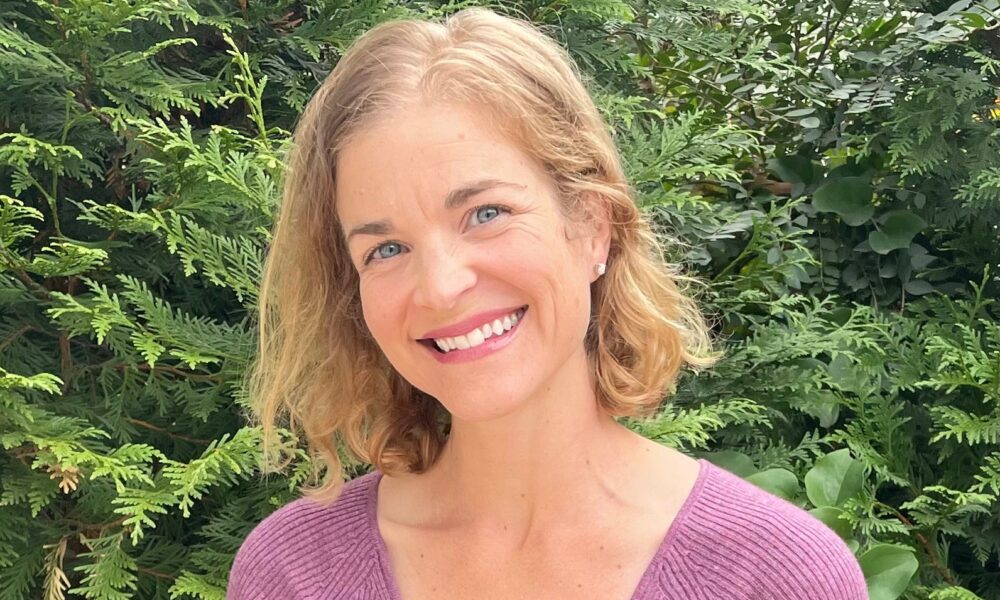

Today we’d like to introduce you to Caroline Gebhardt.
Hi Caroline, we’d love for you to start by introducing yourself.
As a child, I loved to dance and perform, especially the synchronicity of moving with others, but I also felt an underlying need to simply dance however I wanted to move. In my teens, I shape-shifted into teaching fitness and mindful movement as an empowering way to be in my body and share that satisfaction with others. However, I was also immersed in a diet-culture of “shoulds,” so I paid more attention to what others said I should look like instead of paying attention to how my body and true self wanted to move.
At the beginning of my journalism career, I was blessed with sensitive teachers, mentors and therapists who helped me to attune to not only my love for meaning-making through stories but also back to my own truth. To heal from my own diet and exercise wars, I began the circuitous journey to move through stuck feelings, explore my deeper hungers, and practice reaching for them.
Looking back, I was lucky to have tapped into the wisdom of my body’s hunger for natural movement in my early years. I knew my body had metaphorical dances to teach me. To help merge my movement background along with helping others find peace with food and exercise as I had discovered, I began teaching yoga and other mindful movement privately and specifically for addiction- and eating-disorder-recovery groups. But, instead of a prescriptive approach, I found that a relational connection that emphasized the 3Cs of Curiosity, Compassion and Care helped clients to tune into their own sense of self and somatic exploration for a more meaningful experience.
As I helped people to slowly reconnect with their body, I recognized the value of bringing body-based awareness and practices into the healing journey for brain-body relational repair and nourishment. This led me to study trauma, nervous system science and attachment theory as my areas of focus when I transitioned into working as a somatic psychotherapist.
My movement and somatic interests and studies have been the gifts that keep giving from dance, to intuitive movement, to somatic psychotherapy and to embodiment coaching: Over the past few years, I have collaborated with a group of other healing professionals, including longtime Atlanta psychotherapist, artist and dance-movement therapist Dee Wagner, to create a multigenerational trauma healing method called Chi for Two®—The Energetic Dance of Healthy Relationship. Chi for Two embodiment coaching merges attachment-based developmental stages with co-regulation partner practices to help re-pattern nervous system functioning for healing and thriving. To specifically help those who crave a more satisfying relationship to food and their body, I created M-Bodied: Mindful Movement as Mothering Medicine™, which uses early relational Chi for Two practices as a way to help people explore their deeper hungers and feel nourished from the inside-out.
Alright, so let’s dig a little deeper into the story – has it been an easy path overall and if not, what were the challenges you’ve had to overcome?
Before becoming a therapist and embodiment coach, I used food and exercise to help cope until I received the relational support for which I was so desperately hungry. That’s when things shifted, my reaches for living life changed into less of a focus on food and toward other interests and healthier relationships. Having been inspired to help others heal because I’ve had generous support helps me to keep perspective: As a therapist, I honor each of my client’s journeys as unique, and as a mother of three lively children, I am inspired daily to practice feeding my children the relational nourishment they deserve.
I remember at one time feeling like I didn’t know enough about being a therapist or a mother, that I didn’t have enough experience…it was the old “not enough” critic that tried to trick me. But, I’ve come to the realization that relational healing and attuning—as a psychotherapist and as a mother—is not something to master or cognitively know but to practice, to feel, to sense, to experience, to expand upon. I appreciate that there are no quick fixes, sustainable growth takes time, and our coping mechanisms are doorways, paths and guides to our deeper hungers.
Alright, so let’s switch gears a bit and talk business. What should we know about your work?
As a somatic psychotherapist and embodiment coach specializing in disordered eating and trauma-informed parenting, I use a blend of body-based and cognitive approaches with a focus on relational healing. When we feel safe, when we sense support, when we can lean into and push away from a quality of unconditional support, we have an expanded capacity to connect to our unique rhythms, gut instincts and bodily signals.
With nervous-system-informed psychoeducation, relational psychotherapy, and attachment-based co-regulation practices, individuals and parents/caregivers are more equipped to nourish themselves and their children. Relational therapy with an experiential, trauma-informed approach helps behavior issues, maladaptive coping mechanisms like eating disorders and self-harm, and troublesome relationships become less taboo or threatening; Instead, they become the calls-for-connection for healing, reconnection and rich growth.
Creating M-Bodied: Mindful Movement as Mothering Medicine™ has been a longtime project gathered from my personal and professional experiences in an effort to help people feel supported to feed themselves deeply. Science shows us how from womb-to-walking and beyond, relational attunement and healing sets a foundation for bio-psycho-social development. Science also shows us the capacity for healthy relationships to re-pattern nervous system functioning and heal relational wounds. When we can (re)experience supportive relational dances, we have a greater capacity for emotional regulation, executive functioning and creative living. My wish is to help people discover how they can indeed feel nourished and connected to their body’s wisdom—and, hopefully, move into their own uniquely satisfying dance in life!
*Note the photos included in this interview show early relational embodiment practices for trauma-informed multigenerational relational healing. These are not real clients but a family modeling how an experiential session might take shape.
**When “Mother” is referenced here, we are inviting the “mothering quality of oxytocin,” which plays a major role in signaling safety within our Social Engagement system functioning as related to nervous system science. Therefore, those who identify as female, male, or non-binary may offer and embody that “Mother” quality.
Are there any important lessons you’ve learned that you can share with us?
Turning on 80s music and dancing has never let me down. We are all dancers, we all deserve to connect with presence and playfulness, and we all should have the opportunity to take up space with whatever moves that nourish!
Contact Info:
- Website: www.MBodiedTherapy.com
- Instagram: @mbodiedcaroline
- Facebook: https://www.facebook.com/mbodiedcaroline
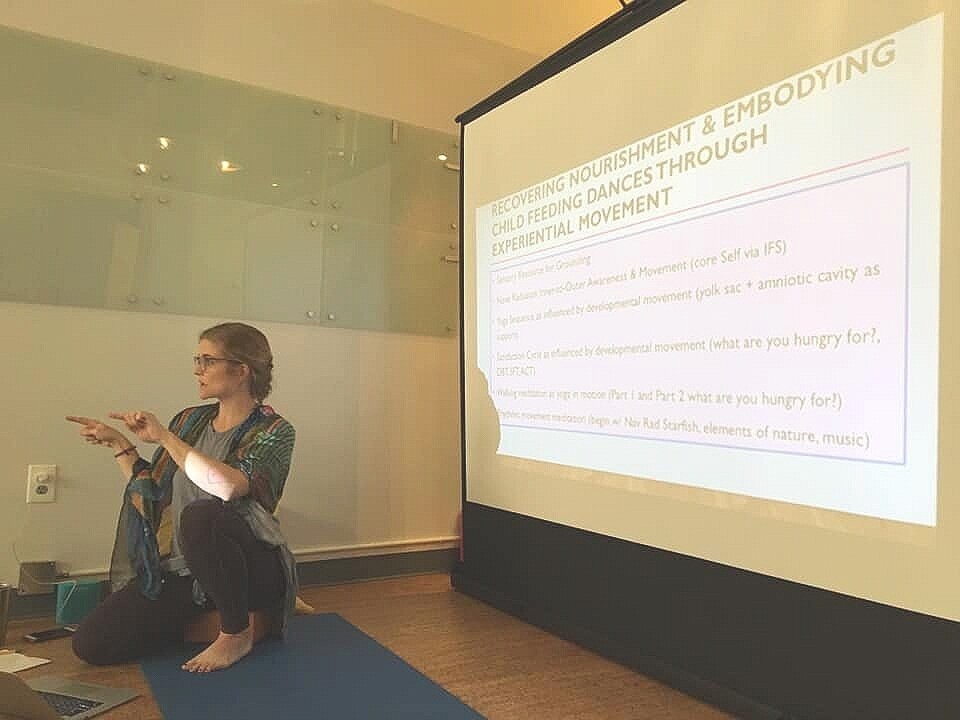
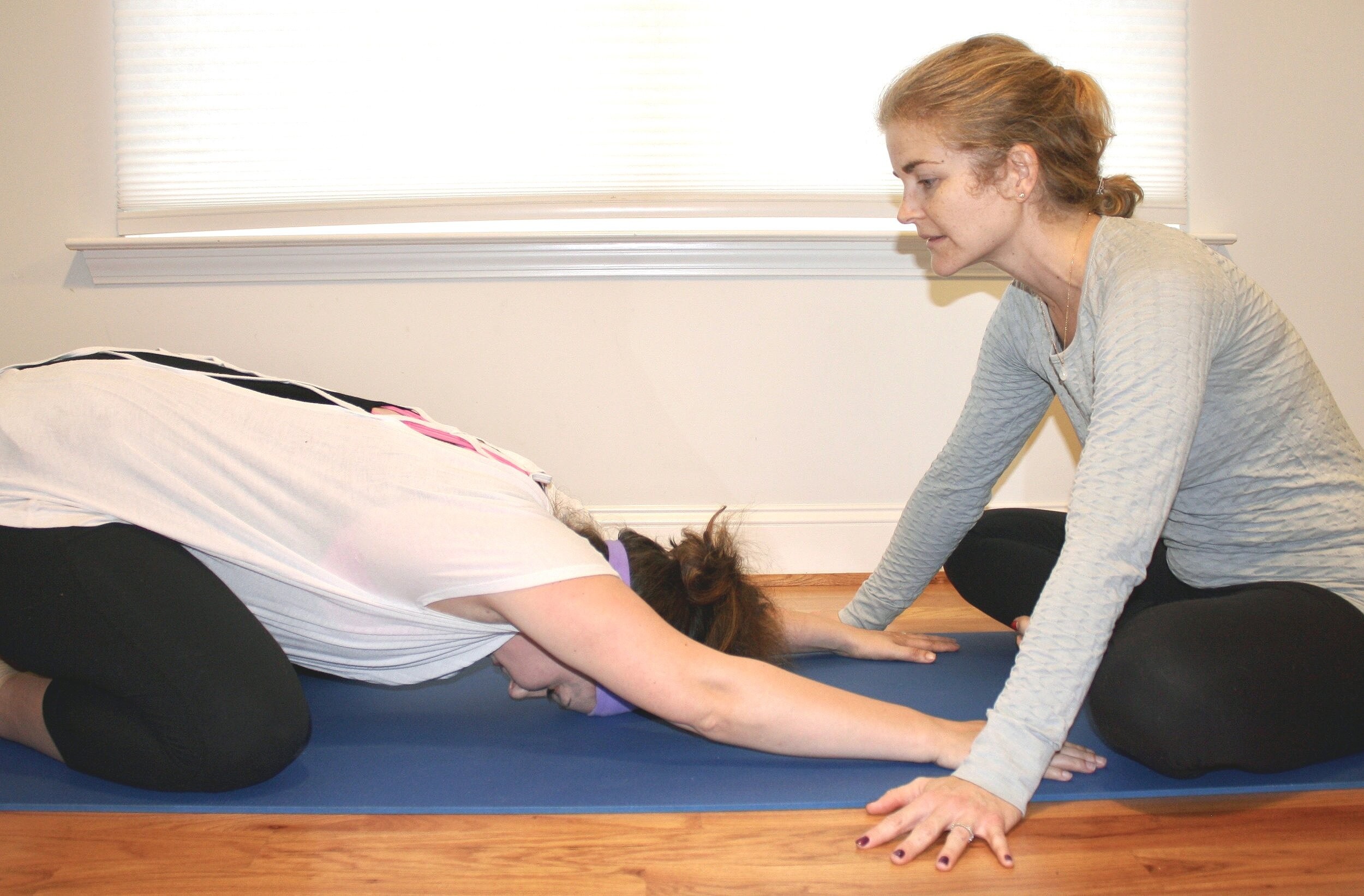
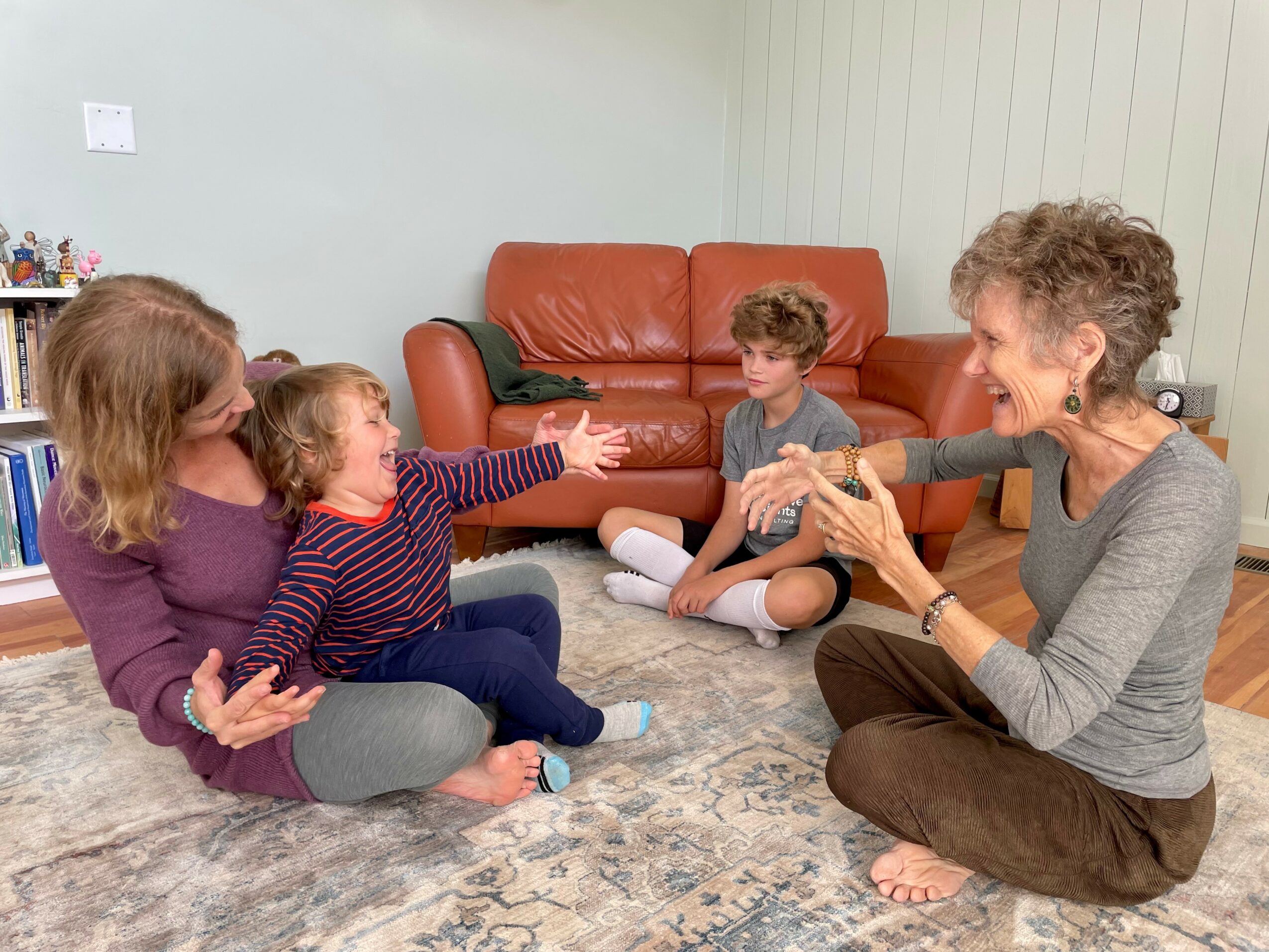
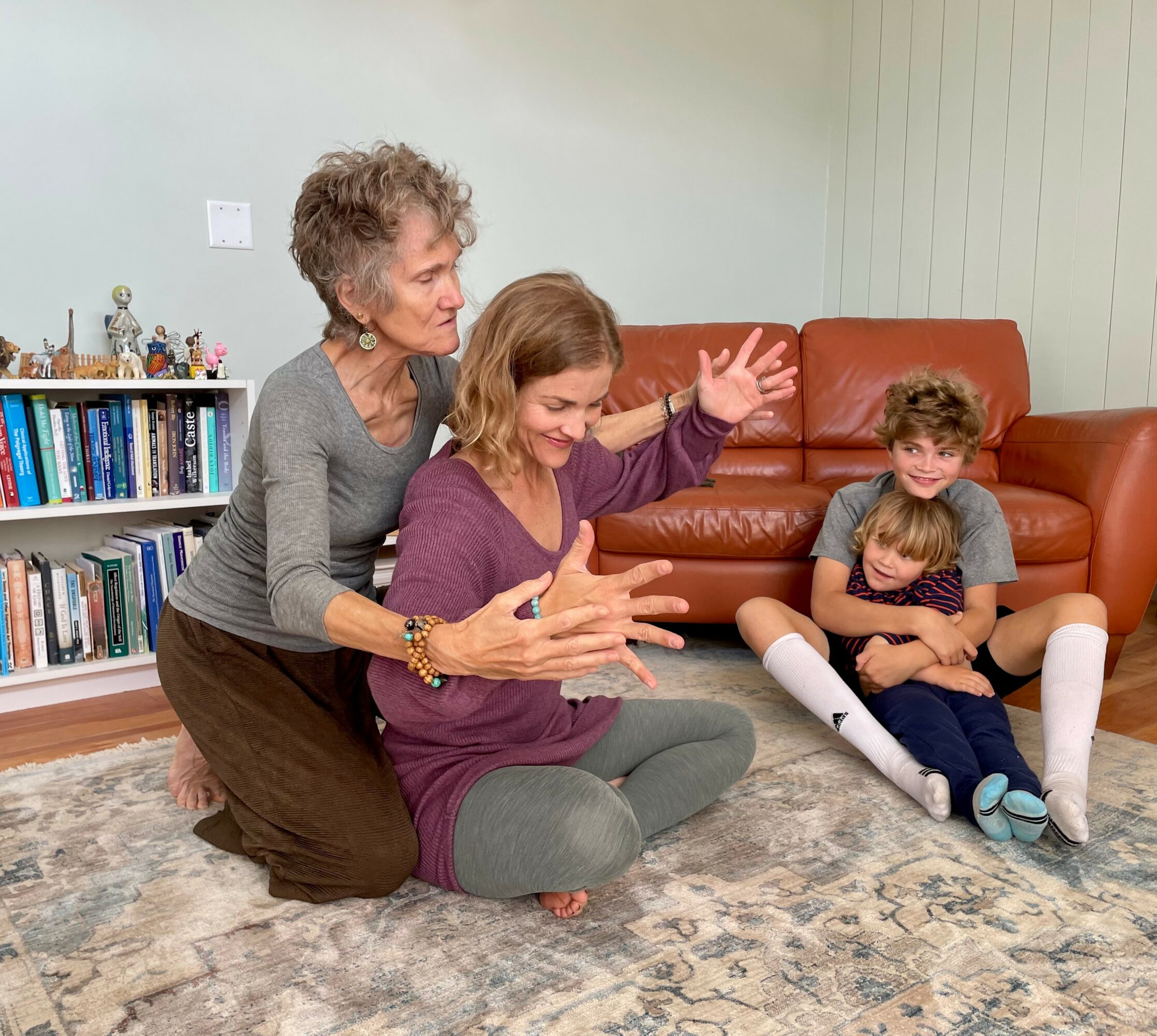
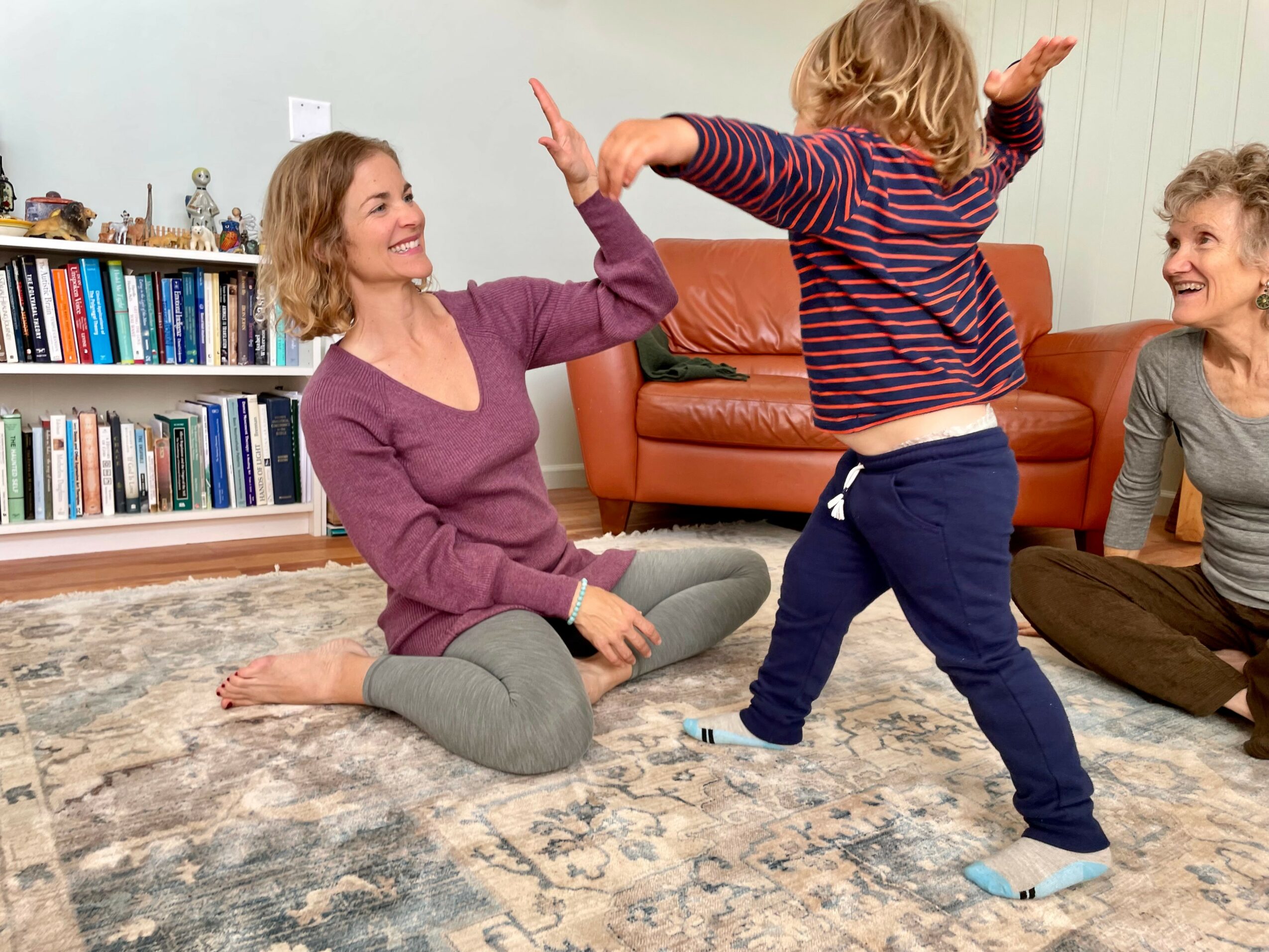
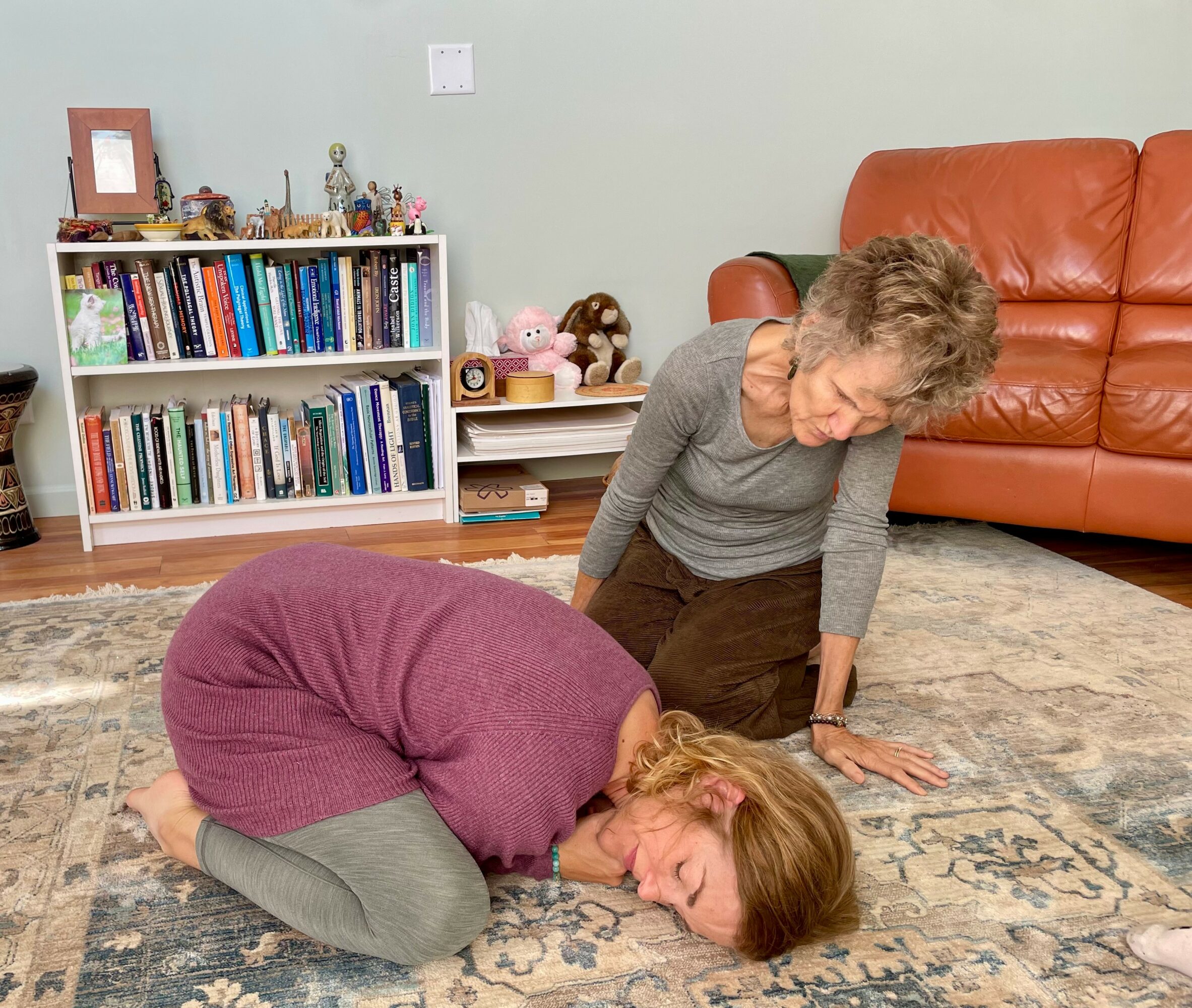
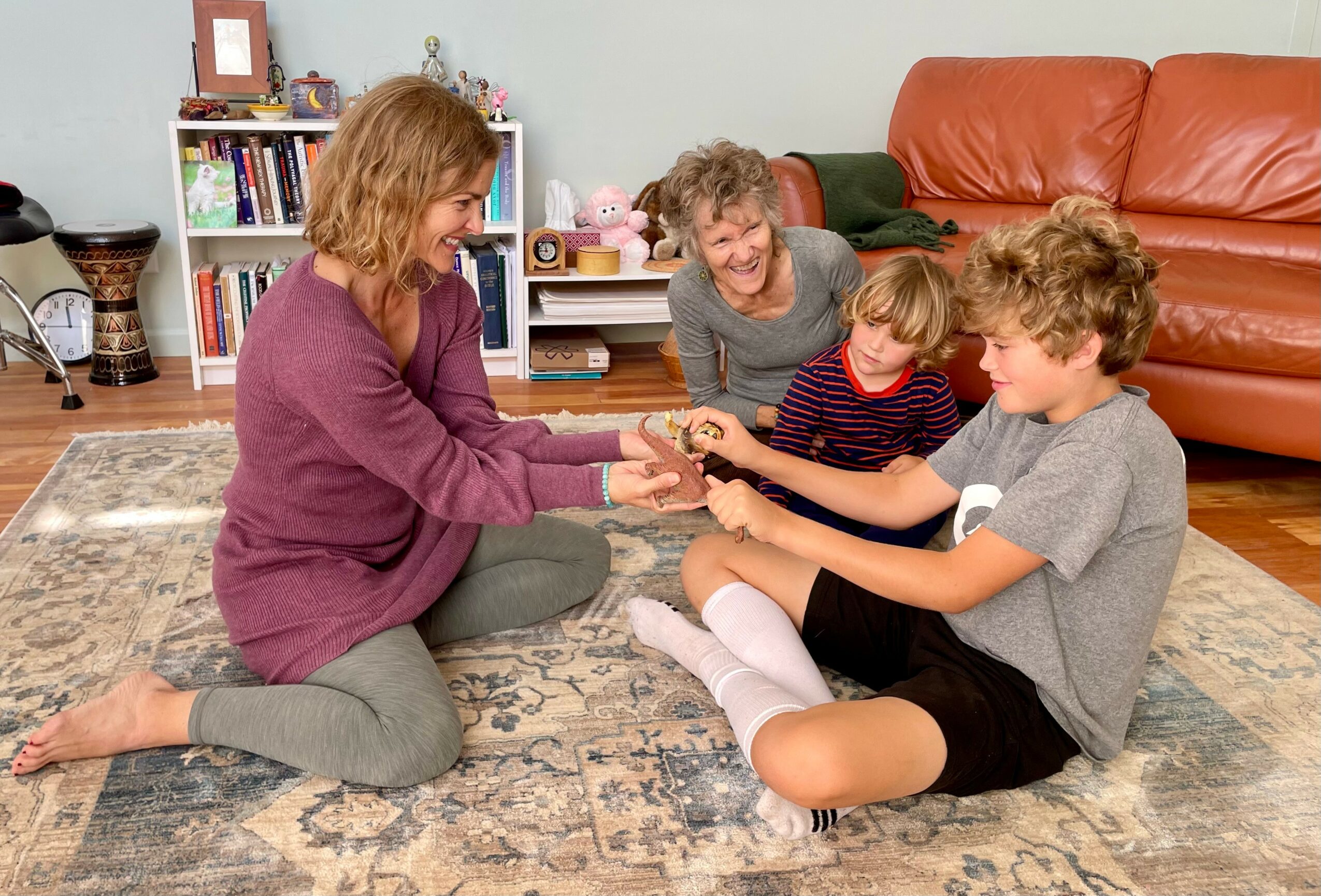
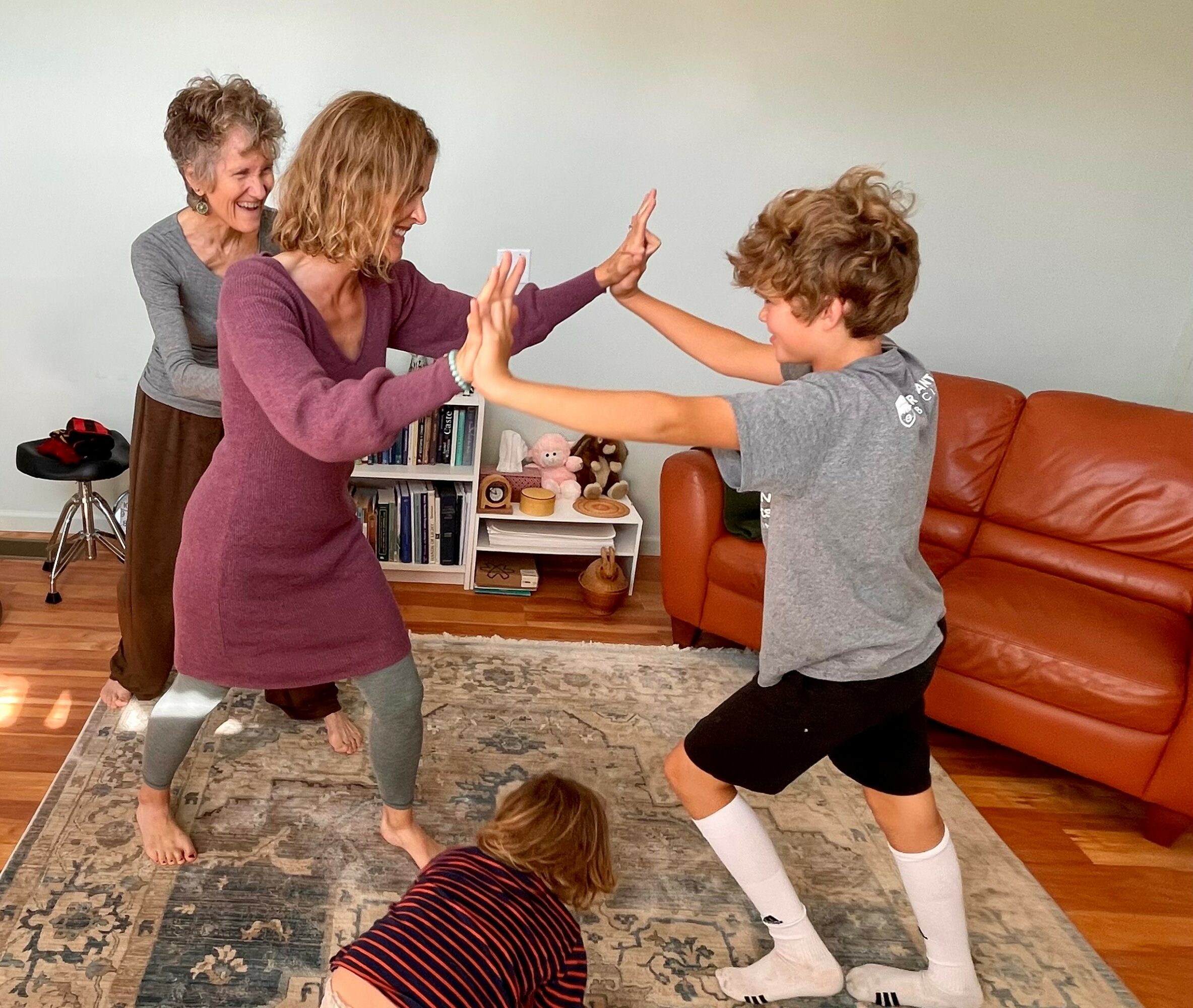 Image Credits
Image Credits
Nick Gebhardt













